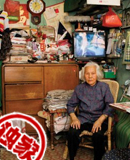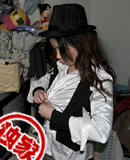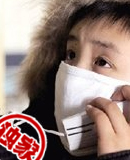复习资料:自考英语(二)重点句型总结(6)
25. The best title for this passage would be 。
A. The Atmosphere and Our Environment
B. Research on Radiation
C. Effects of Space Radiation
D. Importance of Protection Against Radiation 【】
Passage Two
Questions 26 to 30 are based on the following passage。
For some time past it has been widely accepted that babies — and other creatures — learn to do things because certain acts lead to “rewards” ; and there is no reason to doubt that this is true. But it used also to be widely believed that effective rewards, at least in the early stages, had to be directly related to such basic physiological (生理的) “ drives ” as thirst or hunger. In other words, a baby would learn if he got food or drink or some sort of physical comfort, not otherwise。
It is now clear that this is not so. Babies will learn to behave in ways that produce results in the world with no reward except the successful outcome。
Papousek began his studies by using milk in the normal way to “ reward ” the babies and so teach them to carry out some simple movements, such as turning the head to one side or the other. Then he noticed that a baby who had had enough to drink would refuse the milk but would still go on making the learned response with clear signs of pleasure. So he began to study the children s responses in situations where no milk was provided. He quickly found that children as young as four months would learn to turn their heads to right or left if the movement “ switched on ” a display of lights — and indeed that they were capable of learning quite complex turns to bring about this result, for instance, two left or two right, or even to make as many as three turns to one side.Papousek s light display was placed directly in front of the babies and he made the interesting observation that sometimes they would not turn back to watch the lights closely although they would “ smile and bubble ” when the display came on. Papousek concluded that it was not primarily the sight of the lights which pleased them, it was the success they were achieving in solving the problem, in mastering the skill, and that there exists a fundamental human urge to make sense of the world and bring it under intentional control。
26. According to the author, babies learn to do things which 。
A. are directly related to pleasure
B. will meet their physical needs
C. will bring them a feeling of success
D. will satisfy their curiosity 【】
27. Papousek noticed in his studie that a baby 。
A. would make learned responses when it saw the milk
B. would carry out learned movements when it had enough to drink
C. would continue the simple movements without being given milk
D. would turn its head to right or left when it had enough to drink 【】
28. In Papousek s experiment babies make learned movements of the head in order to 。
A. have the lights turned on B. please their parents
C. be rewarded with milk D. be praised 【】
29. The babies would “ smile and bubble ” at the lights because 。
A. the lights were directly related to some basic “ drives ”
B. the sight of the lights was interesting
C. they need not turn back to watch the lights
D. they succeeded in “switching on” the lights 【】
30. According to Papousek, the pleasure babies get in achieving something is a reflection of 。
A. a basic human desire to understand and control the world
B. the satisfaction of certain physiological needs
C. their strong desire to solve complex problems
D. a fundamental human urge to display their learned skills 【】
Passage Three
Questions 31 to 35 are based on the following passage。
Psychologists take opposing views of how external rewards, from warm praise to cold cash, affect motivation and creativity. Behaviorists, who study the relation between actions and their consequences, argue that rewards can improve performance at work and school. Cognitive (认知学派的) researchers, who study various aspects of mental life, maintain that rewards often destroy creativity by encouraging dependence on approval and gifts from others。
The latter view has gained many supporters, especially among educators. But the careful use of small monetary (金钱的) rewards sparks creativity in grade school children, suggesting that properly presented inducements (刺激) indeed aid inventiveness, according to a study in the June Journal of Personality and Social Psychology。
“If kids know they re working for a reward and can focus on a relatively challenging task, they show the most creativity, ” says Robert Eisenberger of the University of Delaware in Neward. “ But it s easy to kill creativity by giving rewards for poor performance or creating too much anticipation for rewards. ”
A teacher who continually draws attention to rewards or who hands out high grades for ordinary achievement ends up with uninspired students, Eisenberger holds. As an example of the latter point, he notes growing efforts at major universities to tighten grading standards and restore failing grades。
In earlier grades, the use of so — called token economies, in which students handle challenging problems and receive — based points toward valued rewards, shows promise in raising effort and creativity, the Delaware psychologist claims。
31. Psychologists are divided with regard to their attitudes toward 。
A. the choice between spiritual encouragement and monetary rewards
B. the amount of monetary rewards for student creativity
C. the study of relationship between actions and their consequences
D. the effects of external rewards on students performance 【】
32. What is the response of many educators to external rewards for their students?
A. They have no doubts about them。
B. They have doubts about them。
C. They approve of them。
D. They avoid talking about them. 【】
特别说明:由于各方面情况的不断调整与变化,新浪网所提供的所有考试信息仅供参考,敬请考生以权威部门公布的正式信息为准。
网友评论
更多关于 自考 的新闻
- 广西自考3月2日起报考 可通过网络报名2010-03-01 11:23:53
- 名师提醒:合理填报自考课程需把握好两点2010-02-25 13:07:05
- 指导:2010年自考备考中如何读熟教材2010-02-25 11:03:45
- 甘肃2010年自考法律专业论文答辩事宜2010-02-25 10:59:37
- 山西2010年上半年自考2月25日起报名2010-02-25 10:57:40






